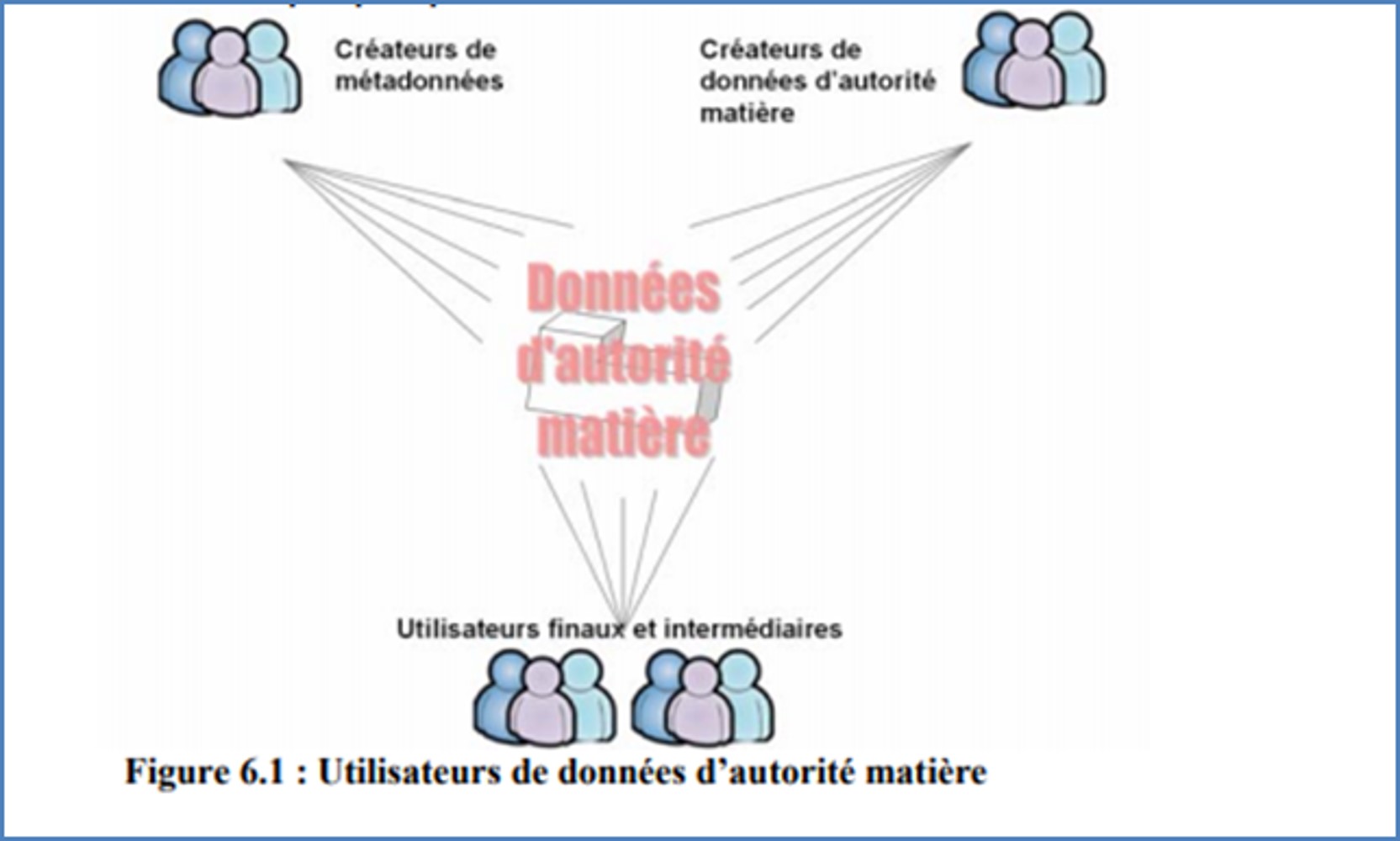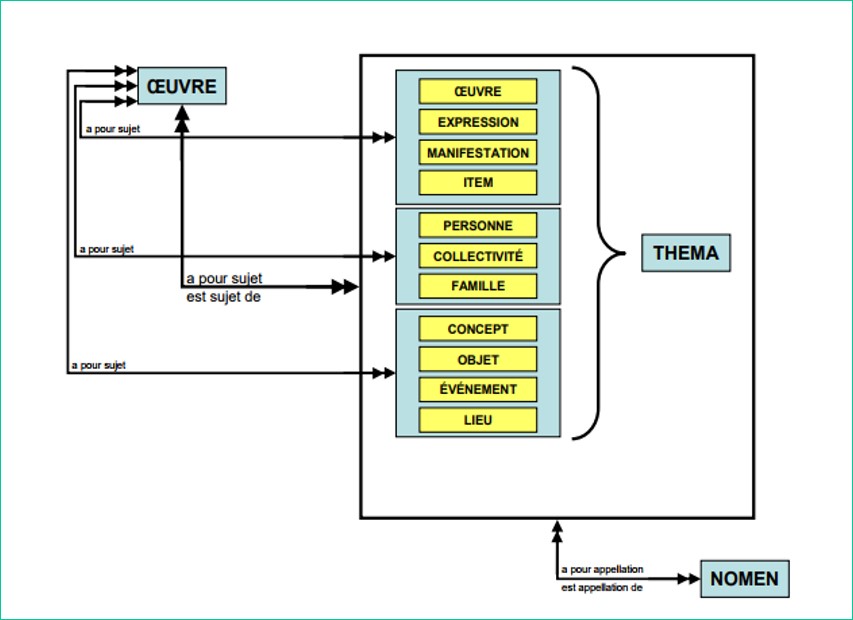The IFLA Working Group on Functional Requirements for Subject Authority Records (FRSAR), established in April 2005 by the Classification and Indexing Section considered it essential to study users of material authority data, to identify the contexts in which the data are used, and to characterize different Use scenarios.

Figure 02: material authority data
FRSAR distinguishes:
- Creators: information professionals who create and update metadata;
- Intermediaries: Information professionals who create and update material authority data, including cataloguers and creators of controlled vocabularies; And reference librarians and other information professionals who play a role in the search for information
- And end users who seek information to meet their information needs.
Intermediaries act on behalf of end-users. They interact with bibliographic data in a manner comparable to that of end users (although at a higher level of expertise).
The FRSAD (Functional Requirements for Subject Authority Data) Working Group has submitted a data model that, in combination with sister models such as FRBR and FRAD (Functional Requirements for Authority Data), is intended to guide the design and construction of resource discovery systems. The FRSAD model focuses on requirements for the production and organization of descriptions of the subjects of resources. For pragmatic reasons, its construction was guided by the compilers’ resolving solution. It was decided to agree on a precise way in which several basic philosophical questions about the subjects of works and subject-related phenomena should be dealt with.

Figure 03: Relation bewteen FRSAD and FRBR
This diagram is based on the original FRBR depicts the “subject” relationships between works and entities in Groups 1, 2, and 3. A new entity, Family, added by FRAD in Group 2, is also reflected in this general framework. The entities in the third group represent an additional set of entities that serve as the subjects of works. The group includes, according to the FRBR model, Concept (an abstract notion or idea), Object (a material thing), Event (an action or occurrence), and Place (a location), “is appellation” of “has appellation”.
The FRSAR Working Group introduced the following two entities:
- Thema: any entity used as a subject of a work
- Nomen: any sign or sequence of signs (alphanumeric characters, symbols, sound, etc.) that a thema is known by, referred to, or addressed as.

Figure 04: Work – Thema - Nomen
The Functional Requirements for Subject Authority Data (FRSAD) model is presented as conceptual model. Both relationtionships “has as subject/is subject of” and “has appellation/is appellation of” are many-to-many relationships. Any work can have more than one Thema and any Thema can be the subject of more than one work.
Some works are perceived as having no Thema as subject (such as certain musical works or abstract artwork), and no subject access is provided to them. These cases are not covered by FRSAD. The cases of a Thema without a Nomen are also beyond the scope of this model.
